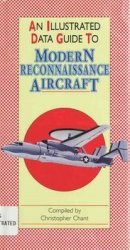Poet
Born: 632/629 b. c.e.; Himera, Sicily (now near Termini Imerese), or Matauros (now Gioia Tauro), Italy Died: 556/553 b. c.e.; place unknown Category: Poetry; literature
Life Practically nothing is known of the life of Stesichorus (stuh-SIHK-uh-ruhs). Ancient Greek tradition places him either in Himera or in Matauros. He composed lyric poetry for individual performance with lyre and perhaps for chorus. As a working poet of the era, he probably was patronized by aristocratic families and cities for which he composed works as part of civic celebrations. This relationship between poet and patron is better documented for Stesichorus’s successors: Simonides, Pindar, and Bacchyl-ides. The Greek historian Pausanias relates the fanciful story that Stesichorus was blinded for portraying Helen as an adulterer who followed Paris (Alexandros) to Troy. Stesichorus’s retraction, which survives in fragments, gives an alternate version in which Helen’s phantom image had gone to Troy, thus proving the real Helen’s virtue. Pausanias says that as a result Stesichorus was given back his sight. The poet’s works were collected in twenty-six books, of which quotations and fragmentary papyri survive. His poems achieve a heightened emotional effect from their combination of Homeric and other epic narratives with lyric meters.
Influence Stesichorus’s recastings of epic narratives of Troy (Wooden Horse, Sack of Troy, Homecomings, Helen, and Oresteia), stories of Thebes (Eriphyle, Europia, and a work on Oedipus’s sons), Heracles’ exploits (Cycnus, Cerberus, Geryoneis), and other mythological traditions (Calydonian Boar Hunt) became a valuable storehouse of material and storytelling patterns for the choral lyric poets Pindar and Bacchylides, for the Greek tragedians Aeschylus and Euripides, and even for Athenian vase painters.
Stesichorus Further Reading
Campbell, David A. Greek Lyric. Cambridge, Mass.: Harvard University Press, 1993.
Hutchinson, G. O. Greek Lyric Poetry: A Commentary on Selected Larger Pieces. New York: Oxford University Press, 2001.
Mulroy, D. Early Greek Lyric Poetry. Ann Arbor: University of Michigan Press, 1992.
Segal, C. “Stesichorus.” In The Cambridge History of Classical Literature.
Vol. 1. Cambridge, England: Cambridge University Press, 1984. Willink, C. W. “The Metre of Stesichorus PMG 15/192.” Mnemosyne 55, no. 6 (November, 2002): 709-711.
Marc Mastrangelo
See also: Bacchylides; Literature; Lyric Poetry; Pindar; Simonides; Troy.




 World History
World History









